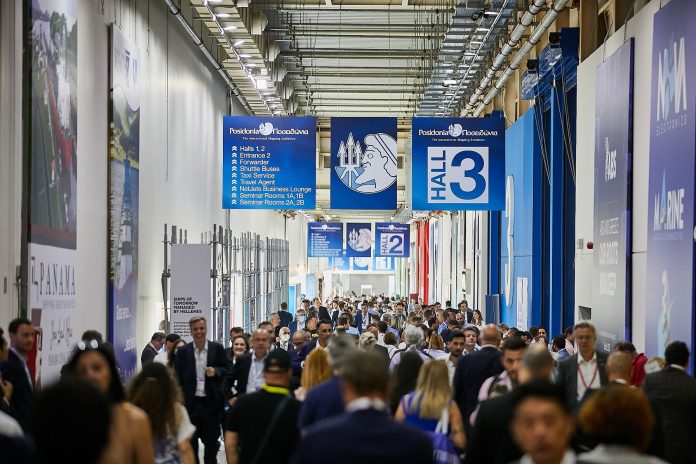“Bunkering has been hit from the trickledown effect of the sanctions against Russia, and this of course has had a serious impact on prices,” said Alexandros Prokopakis, CEO of probunkers, an Athens-based LNG bunker supplier, in Posidonia.
Ship fuel suppliers rallied to more than 40 at an extremely critical juncture in the US$300 billion fuel market, due to a double “explosion” caused by the geopolitical crisis and the uncertainty surrounding the regulatory framework pertaining to the decarbonisation of the shipping industry.
“Since we are in unchartered territory, no one can really predict where the price will end up. Hopefully for now we will stay at this level, if not, the effect of exceeding the US$1,200 mark will bring about a detrimental ripple effect across the entire shipping industry,” added Prokopakis.
Commercial director of Baluco, Giannis Stavropoulos seems to agree. “The price of oil has doubled, and this has created an extra cost for ship operators because oil and lubricants account for almost 60-70% of the total vessel operational expenses,” he noted.
“So, the total cost per journey has skyrocketed and that’s not just it. Credit lines for operators have also been impacted as they have to pay double the amount they used to, in order to receive the same volume as they did before the crisis,” Stavropoulos stated.
In fact, both stressed that the demand for bunkering fuel, not only has not been affected, but has increased in ports outside Russia, as supply points have decreased.
In addition to fuel prices, however, lubricant prices are also rising.
According to David Price, CEO of Gulf Oil Marine, a lubes maker and supplier, there is an increase of between 20 and 30 cents per litre, which is roughly a 20% spike. However, Price said that he is afraid that “we still haven’t seen the end of this pressure on prices. We forecast a further increase of 10-20% by the end of the year, and we are doing our best to mitigate the increases.”
The war in Ukraine has caused supply problems in the lubricants sector as well. According to Grigoris Papathanassiou, CEO of Gulf Oil Marine Hellas, supply has been reduced due to sanctions in Russia, but hard work around the clock is the medicine to ensure supply stability.
Nellos Economopoulos, general manager of Valecrest Marine Lubricants, stated that “in order to be able to be ready for the future, we first need to know what the future will be. Once the number one option for the fuel of the future is agreed upon, we then need to start preparing for it, in order to develop the suitable lubes solutions.”







